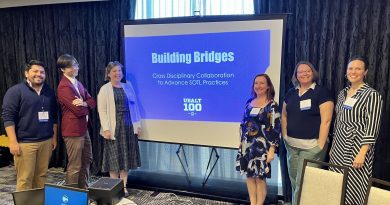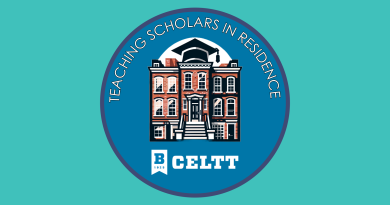Meet the TSiRs: Liz Keyes & Megan Rhee
The pursuit of excellence in learning and teaching is not just a commitment, but a journey of continuous exploration and innovation. That’s why one goal for the Teaching Scholars in Residence (TSiR) Program is to foster a community of scholars dedicated to pioneering educational methodologies that meet the evolving needs of our students and society. This month, we are excited to showcase two members of our inaugural group, Liz Keyes (LAW) and Megan Rhee (CAS), who are each embarking on projects poised to transform the classroom experience.
- Liz is turning her attention to the Socratic method, a hallmark of legal education known for its rigorous questioning technique. While the method has been celebrated for encouraging critical thinking and engagement, Liz’s project addresses a less discussed aspect: its potential to increase student anxiety. Through her research, Liz aims to shed light on the experiences of students who find the Socratic method daunting, proposing modifications and teaching strategies that can reduce anxiety while still fostering an interactive and intellectually stimulating classroom environment.
- Megan is set to explore the transformative concept of ungrading in higher education. At its core, ungrading challenges traditional grading systems by emphasizing learning processes over numerical or letter grades. Megan’s work aims to demystify this innovative approach, offering practical strategies for faculty members interested in implementing ungrading in their courses. By focusing on feedback that promotes growth and self-reflection, Megan’s work seeks to cultivate a learning environment where students are motivated by curiosity and understanding rather than the pursuit of grades.
Both Liz and Megan are tackling traditional pedagogical practices, which exemplifies the University of Baltimore’s commitment to rethinking and refining educational practices for the benefit of our students and the broader academic community. As they delve into their respective projects, we eagerly anticipate the insights they will uncover and the conversations they will inspire among our faculty and beyond. Stay tuned to our blog for updates on their progress and discoveries, as we continue to support and celebrate the innovative spirit that defines our TSiR scholars.


